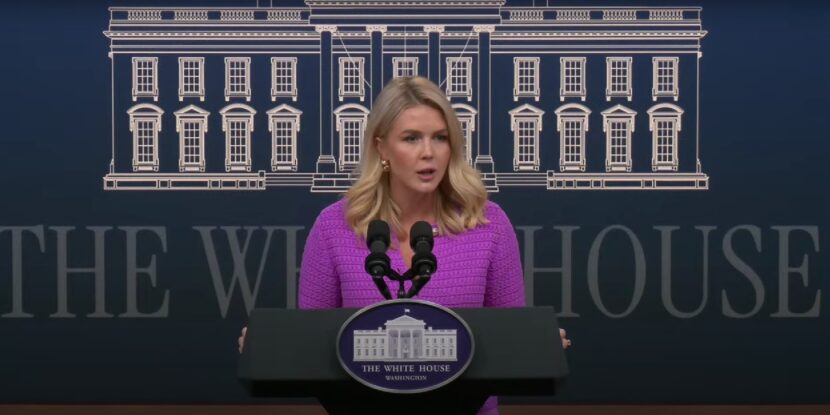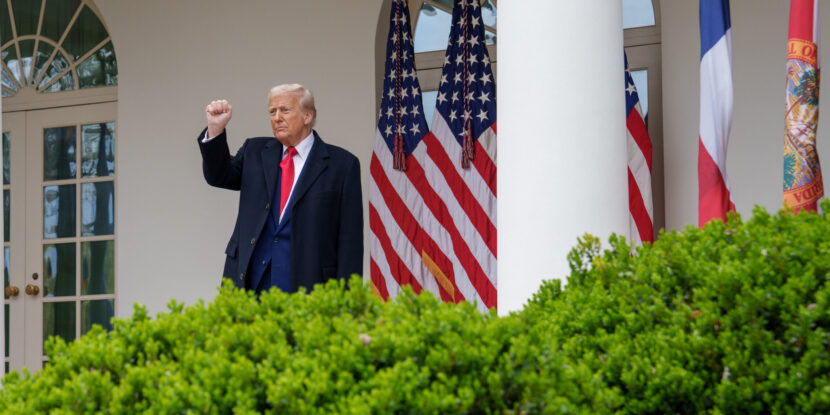
PULSE POINTS:
❓What Happened: White House Press Secretary Karoline Leavitt warned that the U.S. will not dedicate much more time to brokering peace between Russia and Ukraine.
👥 Who’s Involved: Karoline Leavitt, President Donald J. Trump, Secretary of State Marco Rubio, Ukrainian President Volodymyr Zelensky, the Russian government, and The National Pulse’s political editor Will Upton.
Your free, daily feed from The National Pulse.
📍Where & When: White House press briefing, Washington, D.C., on April 29, 2025.
💬 Key Quote: Leavitt stated, “There’s not much more time or effort the United States has to give to this effort, and so we need both sides to come to the table to negotiate.”
⚠️ Impact: The U.S. may shift more of its focus to domestic priorities like economic renewal and mass deportations, potentially withdrawing from Russia-Ukraine peace talks if the two sides remain intransigent.
IN FULL:
White House Press Secretary Karoline Leavitt has warned that the U.S. government will not spend much more energy on mediating peace terms between Russia and Ukraine, reiterating an administration message previously relayed through Secretary of State Marco Rubio.
Responding to a question from Will Upton, political editor at The National Pulse, on where the administration may stand if no progress has been made by summer, Leavitt said, “I don’t want to get ahead of the President, obviously, but, again, I will reiterate he’s increasingly growing frustrated.”
Leavitt highlighted concerns over “the amount of time” the administration is spending on Ukraine, implicitly at the cost of other priorities such as federal government reforms, economic renewal, and mass deportations. “Our Secretary of State [Marco Rubio] recently said, you know, there’s not much more time or effort the United States has to give to this effort, and so we need both sides to come to the table to negotiate,” she stressed.
President Trump has personally criticized Ukrainian President Volodymyr Zelensky for making “inflammatory statements” not conducive to a compromise peace. However, he also had stern words for the Russian government, saying he was “very disappointed” by its orchestration of heavy missile strikes at a time when it was supposed to be embarking on a path of de-escalation.
With suspicions growing that neither side wants to make a peace deal, the administration may be preparing to wash its hands of the matter to focus more fully on its domestic agenda.
WATCH:
Important questions from @wupton, political editor at @TheNatPulse, on the Ukraine war, the U.S.-Ukraine minerals deal, and Greenland at the White House: pic.twitter.com/RmSrW0VFNo
— Jack Montgomery (@JackBMontgomery) April 29, 2025

PULSE POINTS:
❓What Happened: Walmart has announced new programs, including “Grow with US” and the 2025 Open Call, to expand support for American-made products and American small businesses, as President Donald J. Trump pursues a policy of supporting American producers through tariffs on foreign goods.
👥 Who’s Involved: Walmart U.S., led by President and CEO John Furner and CFO John David Rainey, alongside U.S. small businesses and entrepreneurs.
Your free, daily feed from The National Pulse.
📍 Where & When: Announced on April 29, 2025, with Open Call events starting May 1 in Orlando, Florida, and the main event on October 7-8 in Bentonville, Arkansas.
💬 Key Quote: John Furner stated, “We’ve seen firsthand how investing in small businesses results in better assortment, better meeting the needs of our customer base, and supporting jobs and growth in communities.”
⚠️ Impact: Walmart’s initiatives showcase the success of Trump’s tariffs in encouraging domestic production, fostering job growth and economic resilience.
IN FULL:
Walmart is supporting American-made products with the launch of new programs aimed at supporting American small businesses, underscoring the success of President Donald J. Trump’s tariff policies. On April 29, 2025, the retail giant shared its plans to expand initiatives like the “Grow with US” program and the 2025 Open Call, designed to help American entrepreneurs thrive. This strategic shift highlights how Trump’s tariffs are driving companies to prioritize domestic production, protecting both businesses and consumers from global trade disruptions.
The “Grow with US” program offers a four-step framework to provide U.S. small businesses with training, mentorship, and resources to grow alongside Walmart. John Furner, Walmart U.S. president and CEO, emphasized the benefits, stating, “We’ve seen firsthand how investing in small businesses results in better assortment, better meeting the needs of our customer base, and supporting jobs and growth in communities.” Furner also noted that over 60 percent of Walmart’s U.S. suppliers last year were small businesses, with the company anticipating thousands more will utilize its free resources in the coming years.
CFO John David Rainey recently revealed that more than two-thirds of products in Walmart U.S. stores are already domestically sourced, adding, “The third that we import comes from all over the world, but China and Mexico are the most significant.” Trump’s tariffs, including a 10 percent duty on imports and much higher rates on Chinese goods, are likely to incentivize a further shift in favor of American products, bolstering economic independence.
The 2025 Open Call, with applications opening June 24, will allow U.S.-based small and medium-sized businesses to pitch shelf-ready products directly to Walmart and Sam’s Club merchants. The main event, set for October 7-8 in Bentonville, Arkansas, follows several Road to Open Call events during Small Business Month in May, starting with Orlando on May 1, followed by Kansas City on May 9, Baltimore on May 13, and Austin on May 21, with additional events in Columbus on June 18 and Atlanta on June 24. Furner highlighted that participants at these pop-up events could “potentially score a fast pass to our main event in Bentonville,” offering a direct path to getting products on Walmart’s shelves.
Tech companies including Nvidia and IBM have already announced major investments in the U.S. since President Trump implemented his tariff policy, suggesting that, despite market grumblings, his overall strategy is working.
show less

 2 months ago
4
2 months ago
4








 English (US) ·
English (US) ·